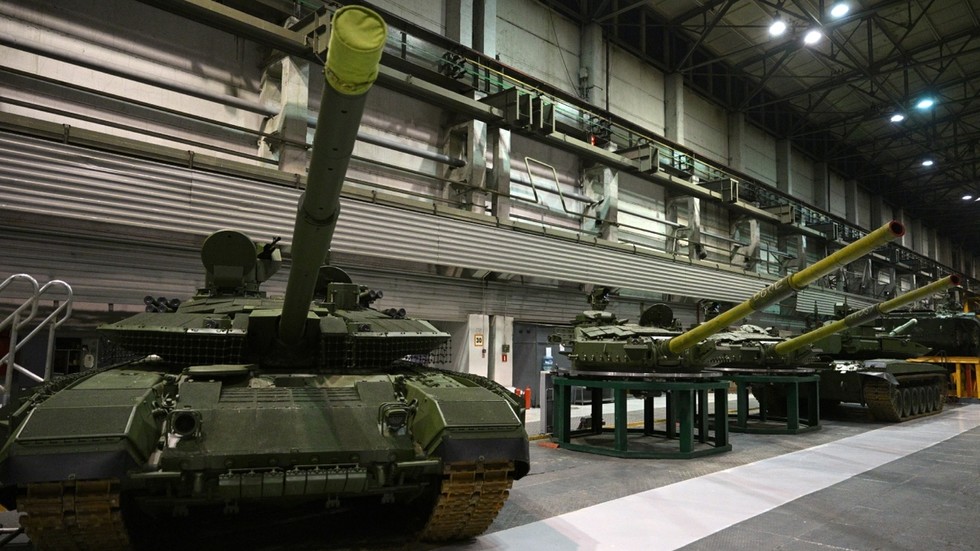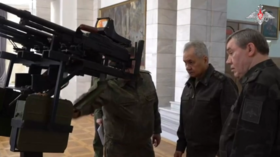
Moscow is producing or refurbishing 350% more tanks than it did in 2022, the head of Rostec defense conglomerate has said

A tank and turrets are seen at an assembly shop of the Uralvagonzavod plant in Nizhny Tagil, Russia. © Sputnik / Ramil Sitdikov
There has been a multifold increase in the production of weapons and ammunition in Russia since the outbreak of the conflict between Moscow and Kiev in 2022, the head of the defense conglomerate Rostec has said.
Sergey Chemezov told Russian Prime Minister Mikhail Mishustin during a meeting on Friday that around 80% of arms used by the Russian military in the conflict are being supplied by Rostec.
The conglomerate, which was established in 2007 on the orders of President Vladimir Putin, involves more than 800 research and production organizations in Russia’s defense sector.
“Compared to 2022, the production and refurbishment of tanks at our factories increased by three-and-a-half times, and of lightly armored vehicles by three times,” the Rostec chief said.
The manufacture of self-propelled artillery pieces has increased tenfold, while 14 times more towed guns are being produced, and the production of multiple rocket launch systems (MLRS) has doubled.

Read more
The output of ammunition rounds for tanks and infantry fighting vehicles increased by 900%, artillery shells by 600%, and munitions for MLRS by 800%. Three times as many unguided rockets for heavy flamethrower systems are being produced, Chemezov said.
According to the Rostec chief, new types of equipment have also been introduced during the conflict, such as TOS-2 heavy flamethrower systems, which are capable of firing munitions with thermobaric warheads and are “widely used in the area of the military operation.” Zemledeliye remote mine-laying systems are also being produced, as well as Krasnopol guided shells, Kub loitering munitions, and guided missiles for UAVs.
Rostec is also working with JSC Tactical Missiles Corporation (KTRV) to equip standard aviation bombs with gliding modules and guidance systems, he said.
The Washington Post reported in March that the use of glide bombs, which can travel long distances and have high precision, has “dramatically boosted” the effectiveness of the Russian Air Force. The Independent wrote last month that those munitions had been “changing the face” of the conflict between Moscow and Kiev.
READ MORE: Global military spending rose by $2.4trn in 2023 – study
Russian Defense Minister Sergey Shoigu said on Friday that the country’s forces are continuing “to break up” Ukrainian defensive positions along the entire front line. Russia’s territorial gains since the start of the year have amounted to 547 square kilometers, while Ukraine has lost more than 111,000 troops and some 21,000 heavy weapons during the period, according to the minister.




